 Murder at the White Palace (Sparks & Bainbridge, #6) by Allison Montclair
Murder at the White Palace (Sparks & Bainbridge, #6) by Allison Montclair Format: eARC
Source: supplied by publisher via Edelweiss
Formats available: hardcover, ebook, audiobook
Genres: historical fiction, historical mystery
Series: Sparks & Bainbridge #6
Pages: 320
Published by Minotaur Books on July 30, 2024
Purchasing Info: Author's Website, Publisher's Website, Amazon, Barnes & Noble, Kobo, Bookshop.org, Better World Books
Goodreads
In post-WWII London, the matchmakers of The Right Sort Marriage Bureau are involved in yet another murder.In the immediate post-war days of London, two unlikely partners have undertaken an even more unlikely, if necessary, business venture—The Right Sort Marriage Bureau. The two partners are Miss Iris Sparks, a woman with a dangerous—and never discussed—past in British intelligence and Mrs. Gwendolyn Bainbridge, a genteel war widow with a young son entangled in a complicated aristocratic family. Looking to throw a New Year’s Eve soiree for their clients, Sparks and Bainbridge scout an empty building—only to find a body contained in the walls. What they initially assume is a victim of the recent Blitz is uncovered instead to be a murder victim—stabbed several times.To make matters worse, the owner of the building is Sparks’ beau, Archie Spelling, who has ties to a variety of enterprises on the right and wrong sides of the law, and the main investigator for the police is her ex-fiancée. Gwen, too, is dealing with her own complicated love life, as she tentatively steps back into the dating pool for the first time since her husband’s death. Murder is not something they want to add to their plates, but the murderer may be closer to home than is comfortable, and they must do all they can to protect their clients, their business and themselves.
My Review:
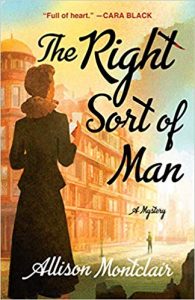 Over the course of the Sparks & Bainbridge series, beginning with The Right Sort of Man, Iris Sparks and Gwen Bainbridge have proven to have a very strange kind of luck. The sort of luck that has them tripping over murder victims – or in this case having a murder victim nearly drop on one of their heads. But that luck of theirs extends to not just finding the body – but also getting into the thick of the police investigation, involving themselves with the mob, AND, most importantly, figuring out whodunnit.
Over the course of the Sparks & Bainbridge series, beginning with The Right Sort of Man, Iris Sparks and Gwen Bainbridge have proven to have a very strange kind of luck. The sort of luck that has them tripping over murder victims – or in this case having a murder victim nearly drop on one of their heads. But that luck of theirs extends to not just finding the body – but also getting into the thick of the police investigation, involving themselves with the mob, AND, most importantly, figuring out whodunnit.
Up until this case, that luck has extended to emerging from each case with all of their friends, colleagues and hostages to fortune – as well as themselves – relatively unscathed at the end.
This case breaks the last bit of that streak, as the body that drops on Gwen’s head at the beginning leads to Iris’ mobster boyfriend near-death as the result of a gunshot in the middle. Center mass, in fact, but enough of a smidgeon of that luck kept that bullet from his heart. Not that recovery from a through-and-through shot to one lung is going to make his recovery a walk in the park – if he recovers.
Iris wants to murder whoever shot her man – but Gwen is there to keep her friend from going off half-cocked on a revenge spree. Leaving Gwen to do most of the investigation and surprisingly all of the derring-do in Sparks & Bainbridge’s very personal quest to figure out who murdered the body that dropped in the beginning AND who is doing their damndest to make sure that Archie Spelling is interred in a coffin beside him.
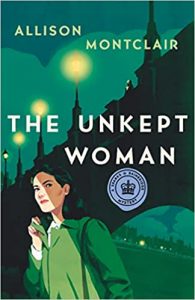 Escape Rating A+: I was up until 3 am finishing this, so an A+ it most definitely is. I tried telling myself I could finish AFTER breakfast, but myself wasn’t listening. I simply HAD to find out whodunnit!
Escape Rating A+: I was up until 3 am finishing this, so an A+ it most definitely is. I tried telling myself I could finish AFTER breakfast, but myself wasn’t listening. I simply HAD to find out whodunnit!
This entry in the series represents a turning point, as well as a bit of trading places. Up ’til now, Iris Sparks, former spy or whatever secret things she did during the war for whatever secret agency, was always the intrepid and daring partner, rushing in where angels rightfully feared to tread.
Gwen Bainbridge, on the other hand, was the cautious and conservative half, fearing – rightfully so – that if they cocked too much of a snook at the conventions that she would be made to pay for it in ways that have hung over her head like the Sword of Damocles in the previous books in the series.
Their positions reverse here, as Gwen is now out from under the restrictions of both her late husband’s family AND the Lunacy Court, while Iris is searching for approval – or at least understanding – from her disapproving mother and Archie’s extended family – only one of which is EVER likely to be on offer.
The police don’t want to listen to either of them – which is par for the course. Not only do the coppers not enjoy being shown up by a couple of amateurs, but Iris’ relationship with a mob boss and Gwen’s partnership with Iris, her friendship with Archie, and the friendly relations she has with Archie’s gang, tar both women with the brush of criminality.
Also, the police don’t seem to be all that interested in investigating Archie’s shooting. They don’t care much if one mobster rubs out another – they’re only worried about the potential for mob warfare that seems likely to follow.
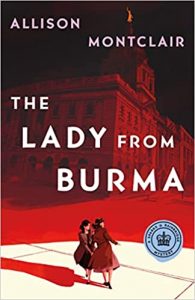 But the case itself isn’t so much about Archie as it is about Archie poking his nose in places that it doesn’t belong. It’s about the past – and not even Archie’s own. While Archie is fighting for his life in the hospital, and Iris Sparks is emotionally flailing about the potential loss of a future she wasn’t sure that she wanted until it was nearly snatched out of her hands – it’s up to Gwen Bainbridge to get to the bottom of the case that literally dropped on her head.
But the case itself isn’t so much about Archie as it is about Archie poking his nose in places that it doesn’t belong. It’s about the past – and not even Archie’s own. While Archie is fighting for his life in the hospital, and Iris Sparks is emotionally flailing about the potential loss of a future she wasn’t sure that she wanted until it was nearly snatched out of her hands – it’s up to Gwen Bainbridge to get to the bottom of the case that literally dropped on her head.
While the case does get wrapped, the story of Iris Sparks and Gwen Bainbridge and the Right Sort Marriage Bureau screeches to a halt with the pop of a champagne cork as 1947 is ushered in on a tide of desperate hope and wild expectation.
This reader, at least, desperately hopes that the next entry in the Sparks & Bainbridge will drop on her head this time next year. It’s not merely a matter of expectation – I absolutely HAVE to know what happens next.

 Fatal Enquiry (Barker & Llewelyn, #6) by
Fatal Enquiry (Barker & Llewelyn, #6) by 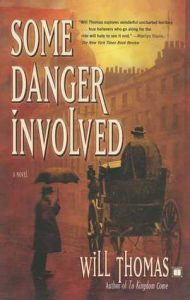 Most of the entries in the
Most of the entries in the  What makes the story rise to an A+, at least for this reader, was the delicious irony of the ending. Nightwine returns to London with deep, well-laid plans to eliminate Barker. Barker, forced to react rather than plan, still manages to maneuver Nightwine to what he believes will be his enemy’s downfall. It’s only after the results of that inevitable confrontation have been dealt with that Barker learns that both he and Nightwine have both been played by someone neither realized was even studying their board – let alone running it.
What makes the story rise to an A+, at least for this reader, was the delicious irony of the ending. Nightwine returns to London with deep, well-laid plans to eliminate Barker. Barker, forced to react rather than plan, still manages to maneuver Nightwine to what he believes will be his enemy’s downfall. It’s only after the results of that inevitable confrontation have been dealt with that Barker learns that both he and Nightwine have both been played by someone neither realized was even studying their board – let alone running it. The Graveyard of the Hesperides (Flavia Albia Mystery, #4) by
The Graveyard of the Hesperides (Flavia Albia Mystery, #4) by  No matter how much technology advances, human nature remains pretty much the same, and that’s a big part of what makes historical mysteries so much fun AND so absorbing. That’s especially true in the
No matter how much technology advances, human nature remains pretty much the same, and that’s a big part of what makes historical mysteries so much fun AND so absorbing. That’s especially true in the 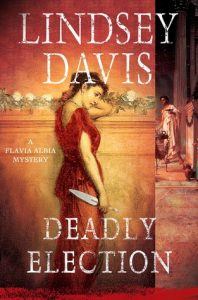 In other words, I came into this book with a whole lot of nostalgia and more than a bit of mystery reading background and baggage crowding my thoughts and falling out a bit willy-nilly all over the place. After all, it’s been nearly two years since I last visited Flavia Albia and her family in
In other words, I came into this book with a whole lot of nostalgia and more than a bit of mystery reading background and baggage crowding my thoughts and falling out a bit willy-nilly all over the place. After all, it’s been nearly two years since I last visited Flavia Albia and her family in  Even as she is in the midst of her own wedding and the hope of future happiness that it brings. If she can just manage to solve this case and get her in-laws out of her own and her formidable mother’s hair before someone’s face gets shoved into fist. Quite possibly her father’s.
Even as she is in the midst of her own wedding and the hope of future happiness that it brings. If she can just manage to solve this case and get her in-laws out of her own and her formidable mother’s hair before someone’s face gets shoved into fist. Quite possibly her father’s.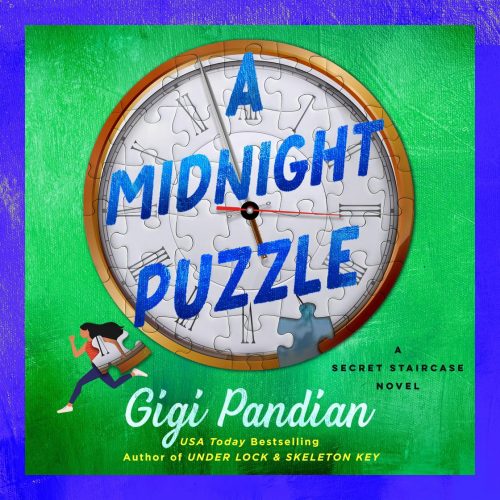 A Midnight Puzzle (Secret Staircase Mystery, #3) by
A Midnight Puzzle (Secret Staircase Mystery, #3) by 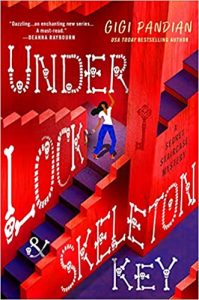 After her adventures – and misadventures – in the first two books in the
After her adventures – and misadventures – in the first two books in the  Escape Rating B: I have to admit that I went into this third entry in the series with a bit of trepidation after the muddle of
Escape Rating B: I have to admit that I went into this third entry in the series with a bit of trepidation after the muddle of 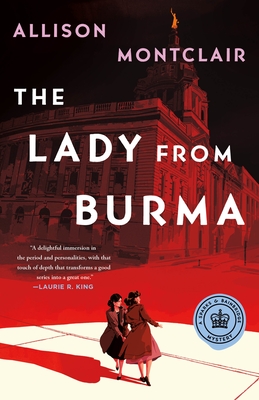 The Lady from Burma (Sparks & Bainbridge, #5) by
The Lady from Burma (Sparks & Bainbridge, #5) by 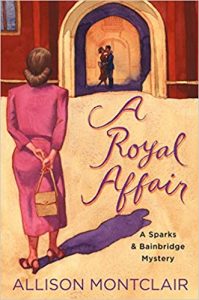 But Gwen is intimately acquainted with the circumstances that might drive someone to suicide, so, when a client presents themselves at the Right Sort Marriage Bureau, intending to contract for a search for her soon-to-be-widower, Gwen is suspicious that Adele Remagen is planning to take her own life before cancer takes it for her.
But Gwen is intimately acquainted with the circumstances that might drive someone to suicide, so, when a client presents themselves at the Right Sort Marriage Bureau, intending to contract for a search for her soon-to-be-widower, Gwen is suspicious that Adele Remagen is planning to take her own life before cancer takes it for her.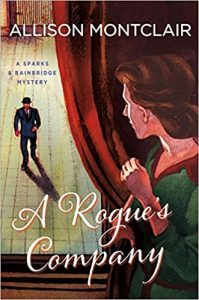 Escape Rating A: The Lady from Burma is a story about closings and openings. Mrs. Adele Remagen’s life is closing, and the top item on her ‘to-do’ list before she dies is to make sure that her beloved husband opens himself back up to the world after she’s gone.
Escape Rating A: The Lady from Burma is a story about closings and openings. Mrs. Adele Remagen’s life is closing, and the top item on her ‘to-do’ list before she dies is to make sure that her beloved husband opens himself back up to the world after she’s gone. The Wayward Prince (The Daughter of Sherlock Holmes Mysteries, #7) by
The Wayward Prince (The Daughter of Sherlock Holmes Mysteries, #7) by  Escape Rating A-:
Escape Rating A-: 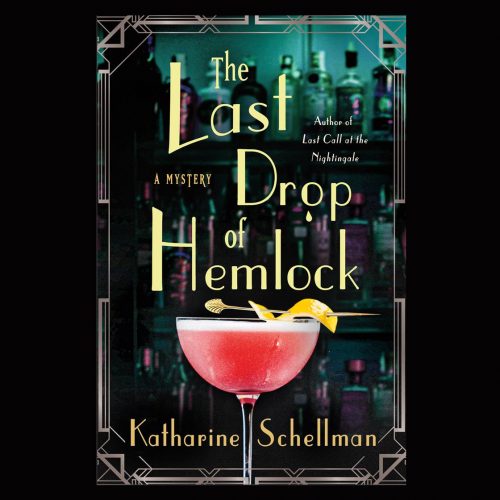 The Last Drop of Hemlock (Nightingale Mysteries, #2) by
The Last Drop of Hemlock (Nightingale Mysteries, #2) by  Escape Rating B: As I was listening to The Last Drop of Hemlock, I remembered what I wrote about the first book in this series,
Escape Rating B: As I was listening to The Last Drop of Hemlock, I remembered what I wrote about the first book in this series, 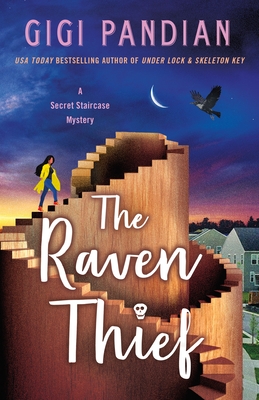 The Raven Thief (Secret Staircase Mystery, #2) by
The Raven Thief (Secret Staircase Mystery, #2) by 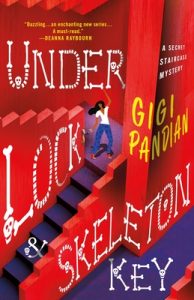 Leaving Tempest and her friends in the same position they found themselves in
Leaving Tempest and her friends in the same position they found themselves in 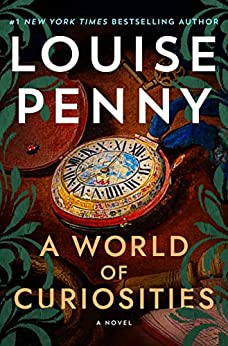 A World of Curiosities (Chief Inspector Armand Gamache, #18) by
A World of Curiosities (Chief Inspector Armand Gamache, #18) by 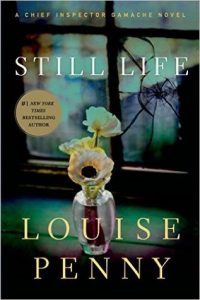 Armand Gamache’s chickens come home to roost – and lay rotten eggs all over Gamache’s past cases, his present peace, and even Three Pines itself in this 18th book in the series.
Armand Gamache’s chickens come home to roost – and lay rotten eggs all over Gamache’s past cases, his present peace, and even Three Pines itself in this 18th book in the series.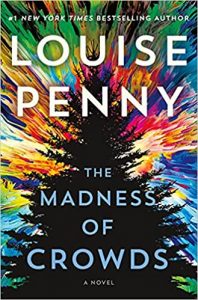 Escape Rating A+: I know I’m not conveying this one well at all. Obviously, I loved it. I was also a bit disturbed by it, because all of the past crimes that lead up to this present danger were very disturbing.
Escape Rating A+: I know I’m not conveying this one well at all. Obviously, I loved it. I was also a bit disturbed by it, because all of the past crimes that lead up to this present danger were very disturbing. Deadly Election (Flavia Albia Mystery, #3) by
Deadly Election (Flavia Albia Mystery, #3) by  But it’s all a lot of fun for any reader, like this one, who loves historical mysteries set in unusual times and places. And for any reader who likes their protagonists to have an inner asshole voice that isn’t always as inner as it should be.
But it’s all a lot of fun for any reader, like this one, who loves historical mysteries set in unusual times and places. And for any reader who likes their protagonists to have an inner asshole voice that isn’t always as inner as it should be.